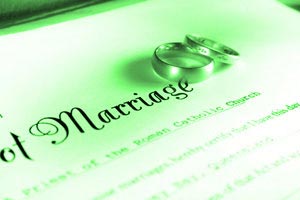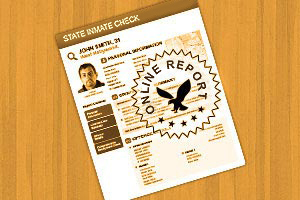Minnesota Public Records
The main mission of Minnesota State Records is to facilitate the search and acquisition of public, court, vital, and arrest records for any citizen that requires such information. This website allows the people of Minnesota to have quick and easy access to all forms of public record, which is in accordance with the Minnesota Data Practices Act, which specifies that all government information and records shall be made available to the public.
The purpose of the Minnesota State Records website is to provide access to these public records in an expedient and simplified manner, and without the need to supply personal information or forms unless the requested information is ruled confidential by law, or court decision.
Minnesota State Records provides access to arrest records, court records, vital records, and over 47 million public records in a fully candid and transparent way.
Are Minnesota Records Public?
Many of the records and data created, used, and maintained by government agencies in Minnesota are considered public records. The Minnesota Government Data Practices Act defines public records as all data collected, created, received, maintained, or disseminated by a government entity. Public records may include photographic, photostatic, microphotographic, or microfilm records containing government data. All government data is public unless classified by statute or federal law as non-public or (for individuals) classified as private or confidential.
What is Considered Public Information in Minnesota?
The following records are considered public data in Minnesota:
- Minnesota inmate records
- Property records
- Minnesota bankruptcy records
- Minnesota sex offender information
- Marriage records
- Minnesota court records
- Public Minnesota arrest records
- Public divorce records
The Minnesota Government Data Act mandates that state agencies develop procedures that ensure record requests are received and handled promptly and appropriately. By contacting the custodial officer, a person may inspect or copy government data during official working hours.
How Do I Find Public Records in Minnesota?
Under the government data practices act, responsible authorities and designees in charge of public data must answer any public data requests they receive. The Data practices Office of the Minnesota Department of Administration explains how to request public records in a few simple steps.
- Determine the type of information required and who to ask
When you determine the type of information you wish to request for the next step is to find out who is in custody of it. The data practices law mandates that government entities appoint a responsible authority or designee in charge of attending to public data requests. Next is to contact the government agency and ask for the name of this office as they are who you must direct your request to. This will avoid delays caused by addressing the request to the wrong person.
- How to request the information
Each government entity may have its own set of procedures, but generally, requests can be made in writing or using the agency-provided request form. The data practice office provides a sample request letter as a guide for writing requests. The responsible authority may also direct you to another official who is in the custody of the information. Some agencies will require prepayment if the request wants copies made of the data being requested.
The government agency must respond if you ask to inspect a record or ask for copies of a record. It does not have to respond if asked to create data or ask vague questions. If requesting private data or data for which you are the subject, the agency may ask you to provide more information during the request.
Using Third-Party Sites to Find Public Records in Minnesota
City Records
Public city records may also be accessible from third-party websites. These non-government platforms come with intuitive tools that allow for expansive searches. Record seekers may either opt to use these tools to search for a specific record or multiple records. However, users will need to provide enough information to assist with the search such as:
- The name of the subject involved in the record (subject must be older than 18 or not juvenile)
- The address of the requestor
- A case number or file number (if known)
- The location of the document or person involved
- The last known or current address of the registrant
Third-party sites are not sponsored by government agencies. Because of this, record availability and results may vary.
Public Records
Public records can also be accessed from third-party websites. These third-party public records aggregate websites offer search services that are non-geographically limited, making the search result expansive and typically straightforward. However, users will need to provide enough information to assist with the search, such as:
- The name of the subject involved in the record as long as the subject is not a juvenile
- The last known or location of the record subject
Third-party public records search websites are not government-sponsored services. Therefore, the availability and accuracy of results can vary.
How Do I Lookup Public Records for Free in Minnesota?
The chances of looking up a Minnesota public record for free will normally depend on the public record and the agency in the custody of it. For instance, most Minnesota district courthouses have installed public service terminals on their premises where you can search for public court records for free. Another good way to look up public records for free would be to visually inspect the record at the custodian’s office during office hours. You can also view certain public records for free online on the government entities' websites. The Minnesota Department of Corrections and Bureau of Criminal Apprehension provide offender search and predatory offender search tools for the state’s inmate and sex offender databases. Inspecting records in person or using certain online government databases are the best ways to avoid fees and to look up public records for free.
Minnesota public records were created starting in 1900, and usually include data from all 87 counties in the state. Government and third party websites are starting to offer these records with increased reliability as digitization takes hold; a process that began around 30 years ago. This abides by the commitment for the United States of America to remain a fair and just society for all.




